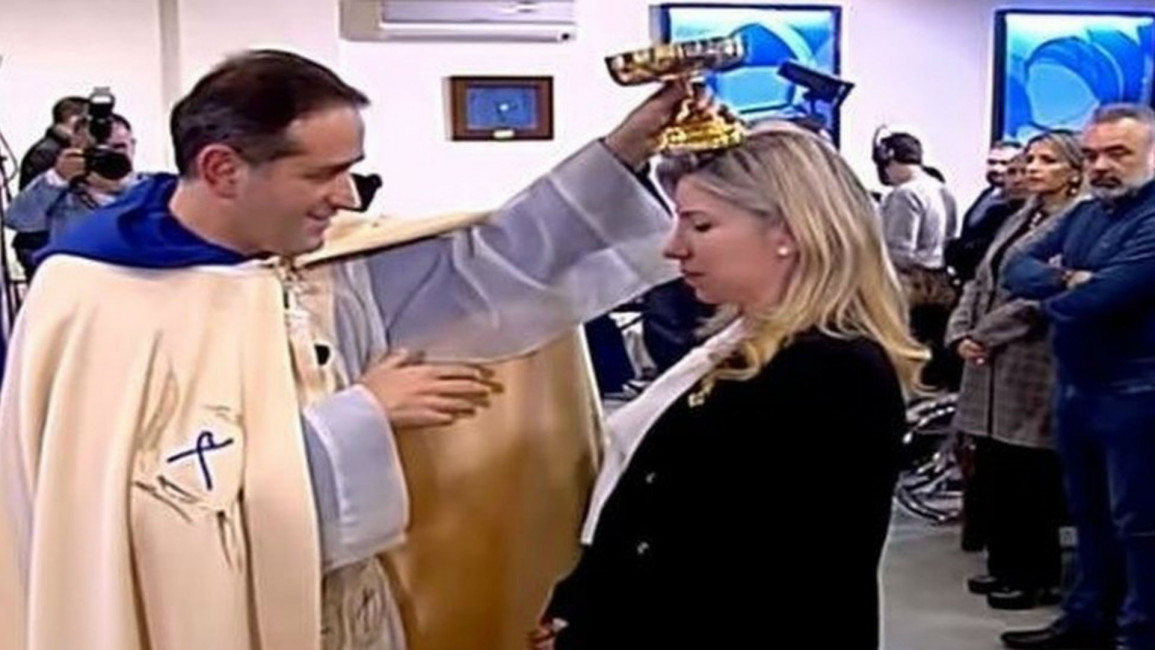Lebanon Muslim lawmaker angers coreligionists after attending Christian mass
A Muslim Lebanese lawmaker has sparked controversy after she attended a Christian mass and has since apologised to God for the move she said was intended as a gesture of coexistence.
Rola Tabsh was filmed earlier this week taking part in a New Year's mass, where she received a blessing from a priest, sparking anger on social media from Muslim conservatives.
Tabsh defended her attendance at the mass in an interview with local media.
"Taking part in cultural exchanges does not mean that we have left our religion. My presence at the mass does not mean that I believe in this religion - it is a sign of my respect for those who believe in this religion," the Sunni Muslim parliamentarian said.
Tabsh added that she had visited the country's highest Sunni authority and 'apologised to God' for her move, sparking another wave of anger from Christians.
Multi-faith Lebanon is home to 18 religious communities, with Christians, Sunnis and Shias making up the largest groups.
Columnist Anthony Kantara condemned the controversy in an article published in local media.
"No one should be attacked for it or be forced to apologise for it and 'prove' they're still faithful to their religion," Kantara said.
"Muslims attending masses and Christian services, as well as Christians attending Muslim services held at mosques, is normal in Lebanon. Especially for events and especially for politicians and religious leaders," he added.
Instances of religious mixing often creates minor controversies in the country.
Last year, a church wedding between a hijab-wearing Muslim woman and a Christian man caused controversy from both religious groups.



